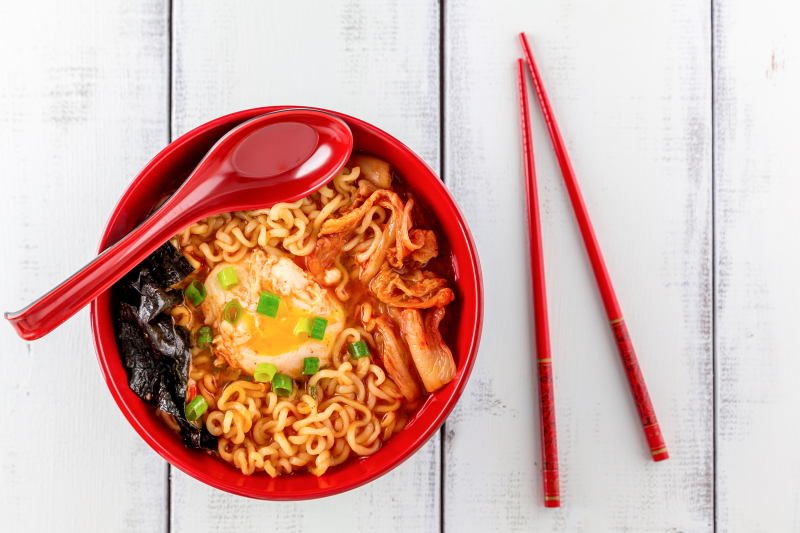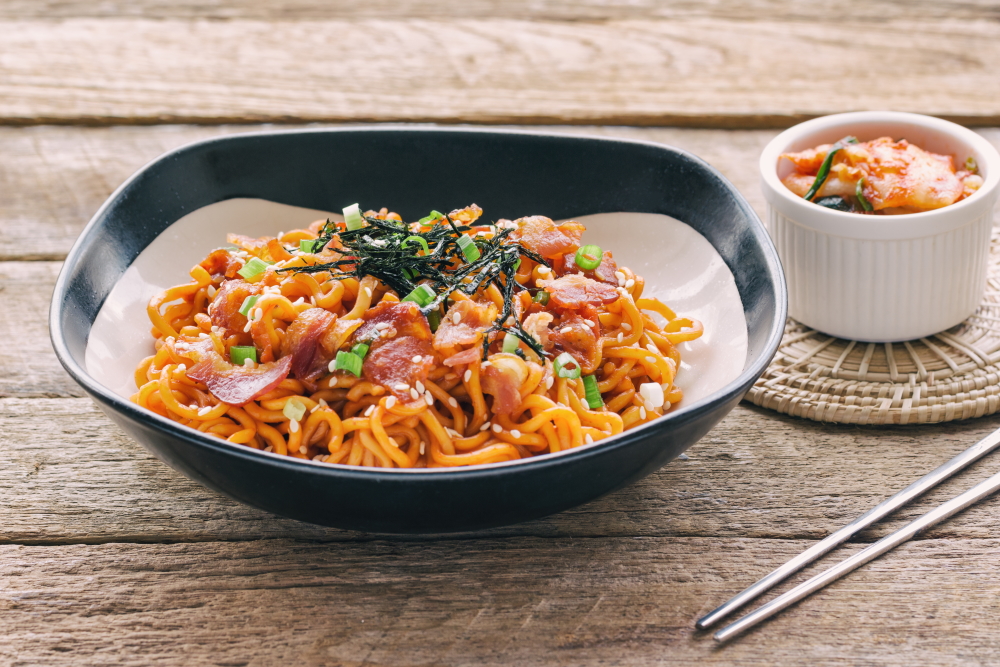Korean food is the best solution to the global health problem, especially diabetes, blood pressure, heart failure – that shortens life-span. It’s medicinal value boosts immunity and help people beat global pandemics such as SARS and COVID-19. Korea Agro-Fisheries and Food Trade Corp. is currently promoting Korean food through Korean Pavilion at the Expo 2020
Healthy food, healthy lifestyle and longevity are inter-connected, scientific researches have shown in recent years – that have been part of the Korean cuisine and food culture for centuries. That’s why, with a renewed global focus on health, wellness and longevity, Korean food is gaining popularity across the world.

While muscle-boosting and anti-aging supplements are in abundance in pharmacies, Korean food, or K-Food – as they are popularly known – have all the medicinal value and health benefits built in.
That’s why, Korean food are the best solution to the global health problem, especially diabetes, blood pressure, heart failure – that shortens life-span. It’s medicinal value boosts immunity and help people beat global pandemics such as SARS and COVID-19.
The Korean people believe in the idea of Yak Sik Dong Won which means that the body-healing resources are the same as the sources of eating. This idea implies that health starts with food and that it is necessary to try medical treatment if any effect is not seen after trying to treat all diseases first with food.
Koreans have discovered how foods are related to disease prevention and treatment. For this reason, while herbs and fruit such as ginger, cinnamon, adlay, wormwood, pomegranate, and ginseng are cooked as food, they are used for therapeutic effects.
“Healthy and healing foods have a long history in Asian cultures. For a long time, eastern culture has believed that food and medicine come from the same source and lead to a healthier life by curing diseases,” says a report published in the Journal of Ethnic Foods. “Korean food has countless health benefits and has been used for centuries to keep the body in balance. Food and medicine are usually considered as one and the same thing.

“The idea that health starts with food means that medical treatment should be tried if any effect is not seen after trying to treat all diseases first with food. In order to help balance the body energies, there are five elements in these foods, namely fire, wood, water, metal, and earth.”
The dishes of the Korean people are synonymous with being healthy and delicious, it says. Over the years, they have evolved from the culture, country’s geography, and traditions of the people of the Korean peninsula under various effects.
“To keep the body warm and healthy, the Koreans have developed fermented foods that improve metabolism. Korean gastronomy has been established on healthy food,” it says.
For example, the biological compounds of kimchi stimulate immune function and reduce free radicals, pro-oxidants, cardiovascular disease, certain cancers, metabolic syndromea, and aging, scientific researches have been shown.
Hyouk Kim, Director for Korean Agro Trade Center Dubai, says, “Korean food culture has been aligned with the medicinal value in order to ensure healthy lifestyle, well-being and longevity. Koreans have long established the fermentation process and also use herbs in their cuisine that enrich food value and keep a consumer super fit.
“Through K-Food, we want to spread these health benefits to the rest of the world – not to just boost our food exports, but to help others achieve a longer and healthier life. Our campaign throughout the Expo 2020 in Dubai is to spread this message and help people enjoy life, remain healthy and a long life.
“With a global concern on health and well-being, we Koreans are well positioned to transfer our knowhow in food technology to the rest of the world. This way, we can help the rest of the world to enjoy healthy food and have a longer life.”
The Koreans do not eat food to become full. Foods are prepared for consumers to be healthy. Healthy food prevents diseases, and individuals who get sick, Korean food aim to heal and refer to using medications in case these methods are insufficient, according to the Journal of Ethnic Foods.
The Korean gastronomy culture dates back to ancient times and attaches importance to many philosophical values. Koreans believe, it is possible to prevent diseases with food and to cure diseases by eating healthy food.
Korean cuisine has a history dating back to centuries. Since 300 BC, it has been greatly influenced by Chinese culture, particularly from medical aspects. According to the Taoist philosophy, health is a state of balance in which food selection is the key, and a person’s body is healthy only when Yin-Yang and five elements are at equilibrium. Yin and yang are the energetic qualities that create the five elements (wood, fire, earth, metal, and water) with harmonious colours (green, red, yellow, white, and black) that shape everything in the universe, including health.
Therefore, a traditional Korean table includes dishes or garnitures formed by five colours, most of which are low in calories and full of vegetables. Nowadays, the consumption of five portions of fruit and vegetables is also highly recommended in the international arena. It is part of a philosophy and tradition which is known from the ancient times in Korea.
“In addition to the yin and yang energy in the body, the senses of taste are used in order to keep the five basic elements, namely fire, wood, water, metal, and earth, in balance. The fire element is bitter, the wood element is sour, water is salty, metal is spicy, and earth is sweet. It has been identified by scientific research that five flavors are associated with organs of the body,” says the report.
Sour food is good for the liver and gallbladder, bitter food is good for the heart and small intestine, sweet food is good for the stomach and pancreas, spicy foods are good for the lungs and large intestines, and salty foods are good for the kidneys and bladder. If one of your organs is ill, the food of the same element can help to repair the damage to that organ, it says.
In Korean cuisine, herbs are used for their medical values, and many common ingredients are agreed to have health benefits. For example, raw potato juice or chives are taken for the stomach. Garlic is used to cleanse the blood and help digestion. Hazelnut is good for skin and pregnant women. Bellflower roots are good for a cough and cold. Rice porridge and pine nuts are used in rehydrates to strengthen patients.
The most important feature of Korean cuisine is the fermentation method used to store and eat foods for a long time. The most known fermented foods include doenjang (soybean paste), ganjang (soy sauce), gochujang (hot pepper paste), and jeotgal (salted seafood).
Jeotgal fermentation time ranges from several months to several years. It is also known that the acids and enzymes emerging from the fermented foods help the immune system, strengthen the liver, and balance the propagation of the beneficial bacteria necessary for intestinal health in the intestine.
Healthy and healing foods have a long history in Asian cultures. For a long time, eastern culture has believed that food and medicine come from the same source and lead to a healthier life by curing diseases.





